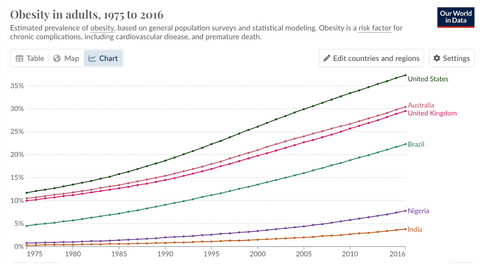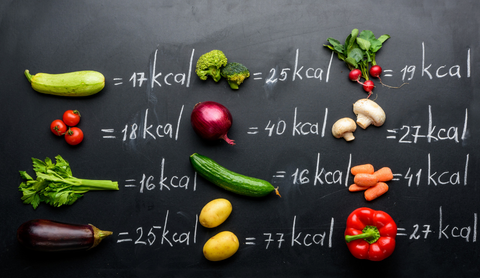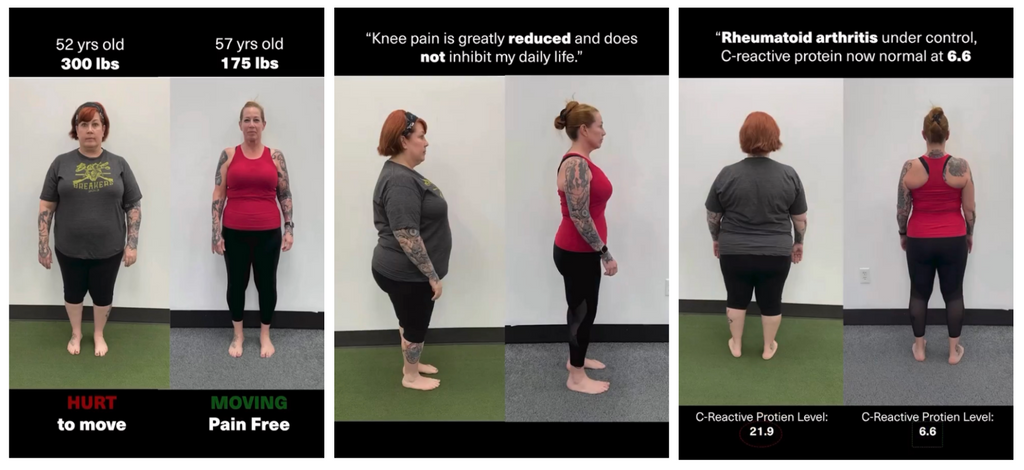INTRODUCTION
Low calorie meals for weight loss as well as just the term “low calorie” as a dietary concept emerged in the early 20th century, while gaining more traction in the mid 20th century. As the growing awareness of the health risks associated with obesity and poor dietary habits grew, marketing and consumer preferences also adapted. Food manufacturers began producing and marketing low calorie breakfast, low calorie dinner and low calorie dessert food products to meet this demand. Since then, the idea of consuming low-calorie foods and beverages has remained a central aspect of many weight loss and diet plans.

History can be often seen as the best teacher when it comes to learning from our own mistakes. In the context of weight loss and obesity, especially in the United States, it is very clear that we haven’t gained any wisdom. The prevalence of obesity has been steadily increasing especially in the United States since 1960, therefore we need to start questioning whether the attempt to reduce caloric intake is accounting for enough variables to keep people from over consuming. Consuming low calorie meals for weight loss is a fundamental principle that directs much of public health policy and although intuitively it makes sense, the reality is much more complex.
Albert Einstein once said, “insanity is doing the same thing over and over again expecting different results.” Therefore, counting calories through the consumption of low calorie food is clearly not working for Americans. This article will dive deeper into the underlying variables as to why this way of thinking is very short-sided and not a long term solution. We will also provide alternative solutions to this problem.
NOT BAD, JUST INCOMPLETE
The utilization of myplate calorie counter or other apps of this kind have been created to help people organize and understand how much they are consuming. Although it can be useful in tracking how much you consume, the quality of what you consume matters more. And what matters more than the quality of what you consume is how well you can control and move your body in space. Dr. Roger Sperry was the 1981 Nobel Prize winner for brain research and concluded that “90% of the stimulation and nutrition to the brain is generated by the movement of the spine.” This means that no matter how well you eat or how perfect you count calories, your biomechanics are going to dictate how much of those nutrients your brain actually absorbs, therefore affecting what hormones the brain ends up releasing.

This is why we often see people who follow certain diets, initially lose weight but always end up gaining it back. Since no biomechanical changes haven’t happened, the release of cortisol due to physiological stress is still dysregulated. The build up of cortisol ends up compounding in the body due to chronic stress and now let's add a caloric deficit on top of that, which leads to hormonal changes that stimulate appetite, it's no wonder people are having a difficult time maintaining a healthy weight. Without accounting for the root problem first, which is how you move, no low calorie food you eat will matter.
We often see professional athletes talking about how they aren’t the best exemplars when it comes to diet. Seattle Seahawks wide receiver D.K Metcalf is 6 foot 4 and 235 pounds of solid muscle. In an interview he mentions that his daily food intake consists of “coffee, three bags of candy and one meal”. It seems athletes like Metcalf are not worried about consuming low calorie food for the most part, yet still perform at the highest level in athletics. This is because they have a baseline control of their body that allows them to perform at extremely high levels regardless of what they put in their body. Now, would they perform and recover better if they consumed foods that were more nutrient dense, probably. Yet the impact on performance is much more dependent on how well they actually move.

METABOLIC HEALTH
As mentioned before, using things like my plate calorie counter or a recipe calorie calculator can be beneficial for tracking how much you are consuming. This coupled with understanding your basal metabolic rate (BMR) is a good start to understanding how much to consume. By creating a modest calorie deficit (typically 500-750 calories per day), you can aim for gradual and sustainable weight loss over time.
Things start to get tricky for most people when they start working out and rely on eating low calorie breakfast cereals and fast foods for their fuel. This is because even though people might be consuming at a calorie deficit, they are unable to account for the stress put on the fascia and organs from the lack of nutrient dense food and improper movement. Now although most will find short term results following the calorie/calorie out approach, it is usually coupled with some sort of stimulant abuse along the way to compensate for a highly stressed system. A common one is caffeine, as in the United States surveys indicate that over 80% of adults consume caffeine daily.
Simply put, this is why most people cannot maintain a healthy calorie deficit in the first place. Their hormones are constantly getting spiked and dropped throughout this process and what eventually happens is the regaining of the weight they lost a year ago since they are unable to stick to the caloric deficit. Additionally, If grains and seed oils are a part of their diet, inflammation inevitably builds up in the joints causing further need to cope with food or stimulants.
A recent study conducted in 2017 stated that “psychologists interested in reducing obesity should consider altering their approach. Why is a reduction in calorie intake recommended when a lower energy intake leads to hormonal changes that stimulate appetite (Lean & Malkova, 2016), reduces metabolic rate (Dulloo & Jacquet, 1998), and stimulates the consumption of more calorific foods (Benton, 2005)? Although it may appear to be common sense to suggest that eating less will reduce the risk of putting on weight, this may not be the optimal approach.”
Meaning that there are already hormonal changes going on when you start eating less. Coupled with the hormonal changes from caffeine and other drugs, along with the joint stress from poor movement mechanics, it's no wonder people fail at losing weight and sustaining a healthy metabolism. Clearly just consuming low calorie food and exercising is not the optimal approach and will not account for all the variables needed to actually lose weight and increase your metabolism.
ADDRESSING POOR MOVEMENT OVER LOW CALORIE MEALS FOR WEIGHT LOSS
To a certain degree we do need to make peace with eating less and in order to do so, the body has to move really well and needs nutrient dense food. In that order specifically because if you move poorly, your body will not be able to utilize the nutrients you give it, no matter how well you eat. Imagine trying to drive your car with square tires. Even if you give it the best gasoline, it will still be inefficient in getting from point A to point B.
Swapping your square tires for round ones is exactly what Functional Patterns does for your body. More importantly the transition is done in a sustainable and pain free way. The goal is to reduce the amount of unnecessary stress on the body so you can actually maintain a calorie deficit without feeling like it's a struggle. By respecting our biological blueprint and training in relation to the FP first four (standing, walking, running, throwing), this allows us to fatigue chains of muscles and gives us the ability to start restoring the elastic properties in our fascia. This in turn starts to help regulate your hormones the better you start moving and magically cravings start to diminish. Over time people are able to overcome their addiction to stimulants because they are moving better. Constantly stressing about having low calorie meals for weight loss starts becoming a thing of the past as you naturally just start eating less because your core is functioning better.

CONCLUSION
In conclusion, we want to make the weight loss journey as low maintenance as possible. By simply addressing our poor movement patterns through Functional Patterns protocols and techniques, we are tapping into the root problem that is affecting millions of people. The consumption of low calorie food is not more important than understanding how to move correctly. Low calorie meals for weight loss will only go so far if you cannot account for your poor biomechanics. More functional behavioral patterns start to follow once fundamental movement patterns are addressed. This approach to sustainable weight loss makes it clear why just counting calories on its own doesn't have the long term effects it is intended to have. To get started on the journey to sustainable weight loss, check out the Functional Patterns 10 week online program.
References
1.) Hannah Ritchie and Max Roser (2017) - “Obesity” Published online at OurWorldInData.org. Retrieved from: 'https://ourworldindata.org/obesity' [Online Resource]
2.) Benton, D., & Young, H. A. (2017). Reducing Calorie Intake May Not Help You Lose Body Weight. Perspectives on Psychological Science, 12(5), 703-714. https://doi.org/10.1177/1745691617690878







